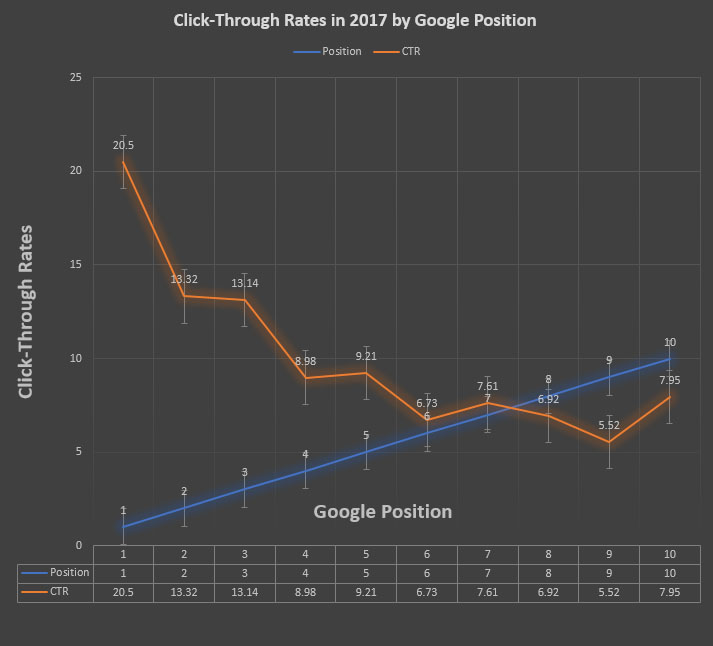What if Charles Dickens had opened “The Tale of Two Cities” with “London in the 1800s was full of contradictory circumstances”? It certainly lacks the pith and drama of “It was the best of times, it was the worst of times.”
Content marketing is like that.
Marketing managers are the authority on brand messaging. They know what needs to be said but don’t always know the best way to say it. Not to mention, they sometimes lack the writing chops, the time or the SEO knowledge to create high-quality content that engages the right audience and performs well in search.
So what do they do? If they’re smart, they commission content marketers who specialize in article writing services to do the heavy lifting for them.

Are article writing services luxury or necessity?
From a content marketing standpoint, they’re a necessity – assuming you don’t already have the in-house knowledge, expertise and resources needed to create and execute an effective web marketing strategy. Business that do not have the wherewithal to manage content creation internally will turn to article writing services to fill in the gaps.
These services improve:
- SEO: Most clicks happen on the first page of search results.

A long and growing list of search engine algorithms are involved in predicting what content (and what types of content – video, imagery, written, etc.) searchers are looking for. Content’s purpose in SEO is to make it easier for users to find your web pages before the competition’s. This requires ongoing keyword research, a steady posting cadence to make sure you continue indexing well on search and well-crafted copy. Google’s algorithms can spot keyword-stuffing and other black-hat SEO methods from a mile away.
- Audience engagement: Company blog posts, contributor articles, how-to articles, infographics and other forms of content are great ways to address specific pain points that potential customers experience in your industry. This content is necessary to broaden the conversation that your brand is having with prospects. It helps keep your brand fresh, relevant and memorable in the face of ever-changing industry circumstances and top-of-mind for prospects. Also, engagement isn’t just about the content that lives on your website and/or blog. It requires persona-driven promotional content over social media and email that helps lure users to your branded blog posts, articles, newsletters, etc.
- Industry credibility: “Thought leadership” is an overused term, but we wouldn’t call it a meaningless buzzword. It’s important to have a platform to share your brand’s ideas and hopefully to earn some media attention from industry commentators, customers and general users. If you can use content to lead conversations in your industry and establish yourself as a source of useful information and tips, you begin to earn credibility. This requires strategy, time, concerted effort and really, really good content – all worth it to become an industry thought leader.
Eighty-nine percent of companies now use content marketing, and of those, 75 percent have been “moderately” to “extremely” successful. The majority of that content is written.
According to the Content Marketing Institute, social media posts (94 percent) and case studies (73 percent) are the top-used types of content in content marketing.
Because, while Google and other search engines have certainly gotten better at analyzing unstructured data including images and videos, carefully chosen language and keywords are still the most effective tools for aligning searcher intent with your content.
Case in point: Are you using some method other than spoken or written word to perform your search queries?
Good luck miming to Google.
Also, Google still uses language as its predominant crawling method, and as long as that’s the case, third-party writing services will represent an invaluable component of establishing a strong presence on the web.
So what makes one writing service better than another?
You’ll find a variety of price ranges when you start looking at any type of writing service, and the same conventional wisdom and common sense that applies to other marketing services is relevant here:
- Be wary of “too good to be true” pricing. A lot of article writing services will farm out their content creation efforts to non-reputable freelancers to bring down their internal costs but at the expense of quality. Try to find a service that creates most, if not all, of its content in house.
- Look for someone who can create multiple types of written content: blog posts, contributed articles to the media, case studies, eBooks, infographics, white papers, press releases, landing pages and so on. If they can provide formatting for your collateral, that’s a bonus (one less vendor to have to manage).
- Ask for samples. Good work often speaks for itself.
Other key benchmarks to consider in an article writing service include:
- Content mapping: This is the process of performing keyword research and topic analysis for every single article that is written. It’s crucial from an SEO standpoint.
- Persona development: Every article should be written with a specific audience in mind. Your article writing services vendor should be involved enough with your big-picture marketing goals to be able to address specific personas, and when necessary, help to shape and refine those personas based on additional research.
- Editing: Make sure that your vendor provides at least one round of free edits to each article they produce for you to make sure the messaging is always on point.
- Imagery: Ask if they have an image library they can pull from to provide visual content with the articles they produce. What will it cost you, if anything?
- Simple workflows: Is there a project management structure to simplify communications, topic approvals and content delivery? Getting what you want from your content marketing or article writing vendor shouldn’t feel like pulling teeth.
These processes will help facilitate consistently strong content; that is, content that’s well-researched and backed up by accurate, interesting and relevant information.
There are ‘writers’ and there are ‘professional writers’
Just because you have good rapport with your project manager or account manager doesn’t mean the content will meet your expectations. Execution is the domain of writers, and it’s every bit as important as strategy.
Look for writers who:
- Demonstrate capacity to understand the subject matter.
- Have experience writing professionally (don’t be afraid to do some LinkedIn creeping).
- Sympathize with your business goals (they aren’t automatons that only do what project managers tell them to; they’re business partners who can help you achieve your goals).
- Communicate confidently, both in person and on paper (if you want to meet your writer in person, your article writing services provider should give you that option; a vendor that keeps its writers under lock and key is a sign of a vendor who isn’t proud of them or confident in their professional acumen).
Professional writers are not expendable commodities. They’re blood and bone to a content marketing agency.
Best practices for creating quality content
At long last, we arrive at the ever-important question: What makes a good article for the web? The answer(s):
- Conformance to a dedicated style guide (e.g., AP Style) to maintain a consistent, professional and polished presence on your website and/or blog.
- Headlines should be pithy enough to grab someone’s attention on social media. Cutting through the noise is half the battle on the web.
- Copy should be broken up with subheads, bulleted lists, imagery, pull quotes, embedded tweets, videos and other forms of content that make the article more scannable and more friendly on the eye.
- Content should reflect subject-matter research, and sources should be credible and relatively recent.
- Tone should be precise and deliberate. “Voicy” writing has its place, and so does dryer information-based content. A good writer knows when to you use which.
- Wordiness: Get rid of it.
It’s worth reiterating that every article should have a clear objective. Why was it written? What data supports the chosen keywords? (This is why content mapping is so crucial.)
Pay attention to these types of details. They’ll help you draw a line between the best of article writing services, and the worst of article writing services.





